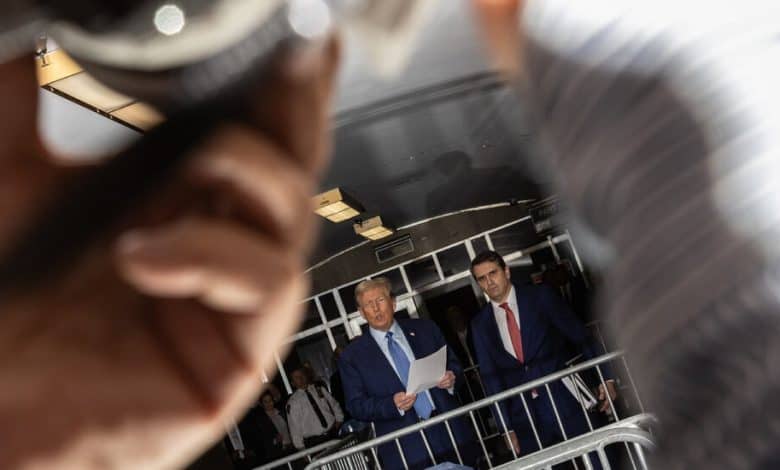Trump Is Not Invincible

In the folk wisdom of recent American politics, Donald Trump is a figure of herculean invulnerability to traditional scandal. What lands as a crippling blow to most politicians leaves nary a scratch on Trump, who effortlessly deflected the slings and arrows of the 2016 presidential campaign and paid no discernible price for the “Access Hollywood” tape, his racism or his general incoherence.
As the tribune of a discontented, “forgotten” people, this folk wisdom goes, Trump draws strength from efforts to hold him accountable. To try to halt Trump’s march is to make him more popular, and more powerful, than he was before.
We saw this view of Trump at work in the run-up to his first impeachment. “Why Democrats’ Attempts to Rein in Trump With Impeachment Could Make His Presidency Stronger,” declared Time magazine on the eve of the House impeachment vote in 2019. We saw this view again, in 2021, after Trump was acquitted by the Senate following his second impeachment. “Trump,” wrote The Guardian, “always thrived on the principle that what does not kill him makes him stronger.”
At the moment, Trump is on trial for falsifying business records as part of his attempt to suppress public knowledge of his affair with Stormy Daniels, a porn star. As part of their case against the former president, prosecutors for the state of New York have accused Trump of spearheading an effort to catch and kill stories that might have undermined his 2016 bid for the White House.
If convicted on any of the 34 felony counts arrayed against him, Trump — the first former president in American history to be criminally prosecuted — could face up to four years in prison. Trump could even go to jail now, if he continues to violate the gag order imposed by the judge, Juan M. Merchan.
Strangely, as the trial unfolds and a prostrate, palpably demoralized Trump awaits his fate, the folk wisdom about his supposed invulnerability has re-entered the bloodstream of our political discourse.